Plot
This article needs a plot summary.(January 2024) |
| Lotus Lady | |
|---|---|
| Directed by | Phil Rosen |
| Written by | Harry Sinclair Drago |
| Starring | |
| Cinematography | M.A. Anderson |
| Edited by | Carl Himm |
Production company | Audible Pictures |
| Distributed by | Greiver Productions |
Release date |
|
| Country | United States |
| Language | English |
Lotus Lady is a 1930 American drama film directed by Phil Rosen and starring Fern Andra, Ralph Emerson and Betty Francisco. [1]
This article needs a plot summary.(January 2024) |
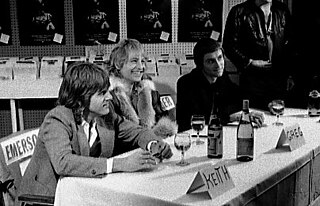
Emerson, Lake & Palmer were an English progressive rock supergroup formed in London in 1970. The band consisted of Keith Emerson (keyboards) of the Nice, Greg Lake of King Crimson, and Carl Palmer of Atomic Rooster. With nine RIAA-certified gold record albums in the US, and an estimated 48 million records sold worldwide, they are one of the most popular and commercially successful progressive rock groups of the 1970s, with a musical sound including adaptations of classical music with jazz and symphonic rock elements, dominated by Emerson's flamboyant use of the Hammond organ, Moog synthesizer, and piano.

Keith Noel Emerson was an English keyboardist, songwriter, composer and record producer. He played keyboards in a number of bands before finding his first commercial success with the Nice in the late 1960s. He became internationally famous for his work with the Nice, which included writing rock arrangements of classical music. After leaving the Nice in 1970, he was a founding member of Emerson, Lake & Palmer (ELP), one of the early progressive rock supergroups.
Transcendentalism is a philosophical, spiritual, and literary movement that developed in the late 1820s and 1830s in the New England region of the United States. A core belief is in the inherent goodness of people and nature, and while society and its institutions have corrupted the purity of the individual, people are at their best when truly "self-reliant" and independent. Transcendentalists saw divine experience inherent in the everyday, rather than believing in a distant heaven. Transcendentalists saw physical and spiritual phenomena as part of dynamic processes rather than discrete entities.

Emerson Fittipaldi is a Brazilian former automobile racing driver who won both the Formula One World Championship and the Indianapolis 500 twice each and the CART championship once.
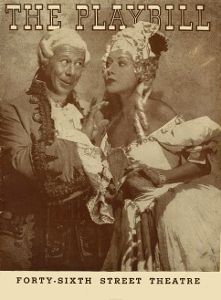
Du Barry Was a Lady is a Broadway musical, with music and lyrics by Cole Porter, and the book by Herbert Fields and Buddy DeSylva. The musical starred Bert Lahr, Ethel Merman and Betty Grable, and the song "Friendship" was one of the highlights. The musical was made into a 1943 Technicolor film Du Barry Was a Lady, starring Red Skelton, Lucille Ball, Gene Kelly and Tommy Dorsey and his orchestra.

Lady on a Train is a 1945 American light-hearted comedy crime film noir directed by Charles David and starring Deanna Durbin, Ralph Bellamy, and David Bruce.

Andra Martin was an American actress who appeared in many television series and a few movies as a contract player for Warner Bros. in the late 1950s and early 1960s.
Emerson is an English surname derived from Anglo-Saxon Emars sunu, meaning "Emar's son" or "Ethelmar's son". Another origin has been suggested as starting with the Old French epic hero Aimeri de Narbonne which passed into Italian as Amerigo and subsequently into English as Emery, Amery, and Imray, among others; Emerson is thought to derived as a patronymic from Emery.

West Point is a 1927 American silent romantic drama film starring William Haines and Joan Crawford in a story about an arrogant cadet who finds love right before the all-important Army–Navy Game.

The Enemy is a 1927 American silent drama film directed by Fred Niblo and starring Lillian Gish, Ralph Forbes and Ralph Emerson. Actor Joel McCrea made an early appearance as an extra.

Macbeth is a silent, black-and-white 1916 film adaptation of the William Shakespeare play Macbeth. It was directed by John Emerson, assisted by Erich von Stroheim, and produced by D. W. Griffith, with cinematography by Victor Fleming. The film starred Herbert Beerbohm Tree and Constance Collier, both famous from the stage and for playing Shakespearean parts. Although released during the first decade of feature filmmaking, it was already the seventh version of Macbeth to be produced, one of eight during the silent film era. Although 1916 was the middle of WW1, this film was part of numerous festivities to commemorate the 300th anniversary of Shakespeare's death. It is considered to be a lost film.
Clarence Budington "Bud" Kelland was an American writer. Prolific and versatile, he was a prominent literary figure in his heyday, and he described himself as "the best second-rate writer in America".
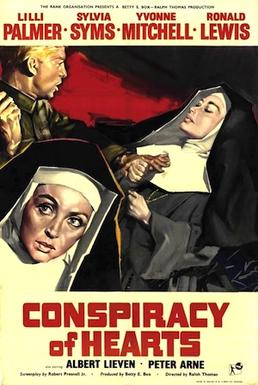
Conspiracy of Hearts is a 1960 British Second World War film, directed by Ralph Thomas, about nuns in Italy smuggling Jewish children out of an internment camp near their convent to save them from The Holocaust. It stars Lilli Palmer, Sylvia Syms, Yvonne Mitchell and Ronald Lewis, and was nominated for a Golden Globe for Best Film Promoting International Understanding at the 18th Golden Globe Awards in 1961.
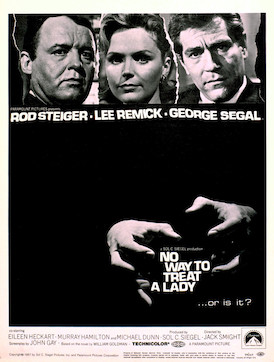
No Way to Treat a Lady is a 1968 American psychological thriller film with elements of black comedy, directed by Jack Smight, and starring Rod Steiger, Lee Remick, George Segal, and Eileen Heckart. Adapted by John Gay from William Goldman's 1964 novel of the same name, it follows a serial killer in New York City who impersonates various characters in order to gain the trust of women before murdering them.

Fern Andra, Dowager Baroness von Weichs was an American actress, film director, script writer, and producer. Next to Henny Porten and Asta Nielsen, she was one of the most popular and well-known actresses in German silent film.
Scattergood Baines is a 1941 American comedy-drama film. It is based on a novel by Clarence Budington Kelland. The character of Scattergood was also popular during the days of live radio. Five other Scattergood Baines films, all starring Guy Kibbee, were subsequently made.
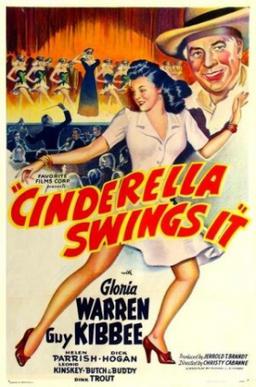
Cinderella Swings It is a 1943 American comedy-drama film directed by Christy Cabanne from a screenplay by Michael L. Simmons, based on short stories by Clarence Budington Kelland about small-town philanthropist Scattergood Baines. Produced and Distributed by RKO Radio Pictures, it was released on January 22, 1943, and stars Guy Kibbee and Gloria Warren. It was the last of the six films in the Scattergood Baines series and the only one without the word “Scattergood” in the title. Originally called Scattergood Swings It, the picture was renamed because the franchise was declining in popularity.
Love Is the Power of Women is a 1924 German silent drama film directed by Erich Engel and Georg Bluen and starring Fern Andra, Henri Peters-Arnolds, and Fred Immler. The film's sets were designed by the art directors Bernhard Schwidewski and Oscar Friedrich Werndorff.

The Cheer Leader is a 1928 American silent drama film directed by Alan James and starring Ralph Graves, Gertrude Olmstead, and Shirley Palmer.
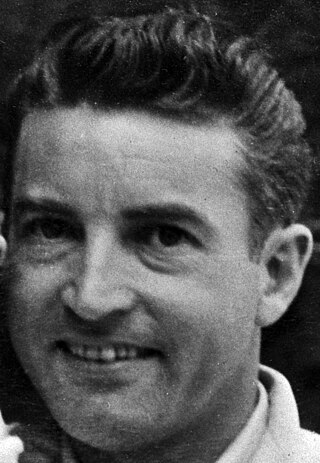
Ralph Emerson (1899–1984) was an American stage and film actor. He played a mixture of lead and supporting roles during the silent era.